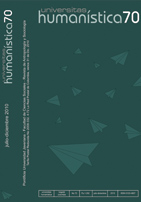Resumen
Las tomas de tierras urbanas se han convertido en uno de los principales problemas de las ciudades latinoamericanas en los últimos 20 años. Desde una perspectiva social y crítica, la tarea es doble: desautorizar las visiones de sentido común que convierten las tomas en actos delictivos y potencian la criminalización de la pobreza y, al mismo tiempo, analizar críticamente las relaciones entre el Estado y los sujetos que protagonizan las tomas de tierras, para comprender la complejidad de la problemática. A partir del análisis de entrevistas a sujetos protagonistas de conflictos sociales en el marco de tomas de tierras urbanas -tanto de los sectores populares como funcionarios municipales-, y de fuentes secundarias, la propuesta es revisar diferentes experiencias concretas en la ciudad de Cipolletti (Argentina), focalizando en las formas de intervención del Estado y discutiendo si son o no manifestaciones de una crisis estructuraldel régimen de propiedad capitalista bajo nuevas condiciones de acumulación

La revista Universitas Humanística se encuentra registrada bajo la licencia Creative Commons Reconocimiento 4.0 Internacional. Por lo tanto, esta obra se puede reproducir, distribuir y comunicar públicamente en formato digital, siempre que se reconozca el nombre de los autores y a la Pontificia Universidad Javeriana. Se permite citar, adaptar, transformar, autoarchivar, republicar y crear a partir del material, para cualquier finalidad (incluso comercial), siempre que se reconozca adecuadamente la autoría, se proporcione un enlace a la obra original y se indique si se han realizado cambios. La Pontificia Universidad Javeriana no retiene los derechos sobre las obras publicadas y los contenidos son responsabilidad exclusiva de los autores, quienes conservan sus derechos morales, intelectuales, de privacidad y publicidad.
El aval sobre la intervención de la obra (revisión, corrección de estilo, traducción, diagramación) y su posterior divulgación se otorga mediante una licencia de uso y no a través de una cesión de derechos, lo que representa que la revista y la Pontificia Universidad Javeriana se eximen de cualquier responsabilidad que se pueda derivar de una mala práctica ética por parte de los autores. En consecuencia de la protección brindada por la licencia de uso, la revista no se encuentra en la obligación de publicar retractaciones o modificar la información ya publicada, a no ser que la errata surja del proceso de gestión editorial. La publicación de contenidos en esta revista no representa regalías para los contribuyentes.


